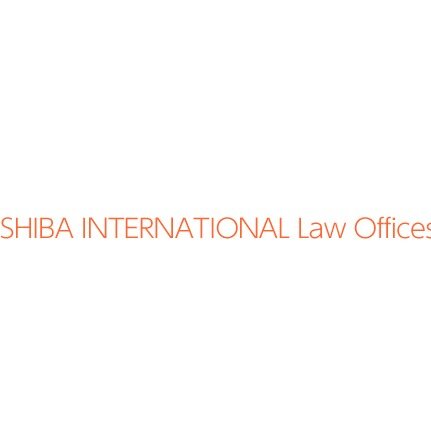Best Bail Bond Service Lawyers in Tokyo
Share your needs with us, get contacted by law firms.
Free. Takes 2 min.
List of the best lawyers in Tokyo, Japan
About Bail Bond Service Law in Tokyo, Japan
Bail bond services in Tokyo, Japan, function quite differently from what many might be familiar with in the United States or other countries. In Japan, there is no commercial bail bond service system. Instead, bail is granted by the courts and must be paid directly by the defendant or their family, friends, or associates. If a defendant is unable to pay bail, they must remain in detention until their trial. The Japanese legal system emphasizes the presence of the defendant at trial, and bail decisions are made with an eye toward ensuring that the defendant does not abscond.
Why You May Need a Lawyer
Requesting bail in Japan is a legal procedure that typically requires the assistance of a lawyer for several reasons. You may need a lawyer if:
- You're unfamiliar with the Japanese legal system and language.
- You need assistance in preparing the documentation and rationalization required to request bail.
- You want to appeal a denial of bail.
- You're not certain about your rights while on bail or the conditions that you must adhere to.
Local Laws Overview
The key aspects of local laws relevant to bail service in Tokyo include:
- Bail is a right, but it is not granted automatically-there has to be assurance that the defendant will comply with the terms.
- Bail amounts and conditions are determined by judges and can vary greatly depending on the nature of the crime, the defendant's circumstances, and any potential risk of flight.
- Communication with your lawyer (bengoshi) is protected by confidentiality and pivotal in navigating the bail process.
- Violating bail conditions can lead to immediate arrest and forfeiture of the bail money.
Frequently Asked Questions
What is the process of obtaining bail in Tokyo?
To obtain bail in Tokyo, a bail application needs to be submitted to the court by the defendant’s lawyer after the initial detention period. The judge then reviews the application and decides whether to grant bail and under what conditions.
How is the bail amount determined?
The bail amount is set by the judge based on the severity of the offense, the defendant's flight risk, and financial situation. There is no set bail schedule, and each case is evaluated individually.
Can foreign nationals get bail in Tokyo?
Yes, foreign nationals can be granted bail, but the court might consider them a higher flight risk, which could affect the likelihood of bail being granted and the conditions set forth.
Is bail refundable?
In general, bail is refunded if the defendant has appeared at all required court dates, regardless of the trial's outcome. However, any fines or penalties may be deducted from the bail amount.
Who can pay the bail amount?
The bail can be paid by the defendant, their family, friends, or any associates willing to support them. However, this is not a commercial transaction and must be made directly to the court.
What responsibilities does the guarantor have?
The guarantor-often a family member or friend-ensures that the defendant will appear in court and comply with the bail conditions. The guarantor may also bear financial responsibility if the defendant violates bail conditions.
What restrictions are defendants under while on bail in Tokyo?
Restrictions can include travel limitations, not engaging in certain activities, or meeting certain individuals, and sometimes reporting regularly to the police.
Can bail conditions be modified?
Yes, bail conditions can be modified by the court upon request. If circumstances change or if the initial conditions are shown to be overly restrictive or inappropriate, a lawyer can file for amendments.
What happens if a defendant violates bail conditions?
If bail conditions are violated, the defendant can be rearrested, may forfeit the bail amount paid, and might face additional charges or penalties.
How long can defendants be held before trial while on bail?
While on bail, defendants will be released until their trial dates. There are no specific restrictions on how long they can be held before trial, as this depends on the court's schedule and the nature of the case.
Additional Resources
For those seeking legal advice in relation to bail bond service in Tokyo, the following resources may be helpful:
- The Tokyo Public Law Office
- Legal Aid Association of Japan
- JAPAN LAWYERS NETWORK
- Embassy or Consular services for foreign nationals
Next Steps
If you need legal assistance with bail bond services in Tokyo, the next steps would typically involve:
- Consulting with a qualified Japanese criminal defense lawyer (bengoshi).
- Gathering all necessary documentation related to your case.
- Having a guarantor, if necessary, who can support your bail application.
- Preparing for the bail hearing and any related court dates.
Lawzana helps you find the best lawyers and law firms in Tokyo through a curated and pre-screened list of qualified legal professionals. Our platform offers rankings and detailed profiles of attorneys and law firms, allowing you to compare based on practice areas, including Bail Bond Service, experience, and client feedback.
Each profile includes a description of the firm's areas of practice, client reviews, team members and partners, year of establishment, spoken languages, office locations, contact information, social media presence, and any published articles or resources. Most firms on our platform speak English and are experienced in both local and international legal matters.
Get a quote from top-rated law firms in Tokyo, Japan — quickly, securely, and without unnecessary hassle.
Disclaimer:
The information provided on this page is for general informational purposes only and does not constitute legal advice. While we strive to ensure the accuracy and relevance of the content, legal information may change over time, and interpretations of the law can vary. You should always consult with a qualified legal professional for advice specific to your situation.
We disclaim all liability for actions taken or not taken based on the content of this page. If you believe any information is incorrect or outdated, please contact us, and we will review and update it where appropriate.









